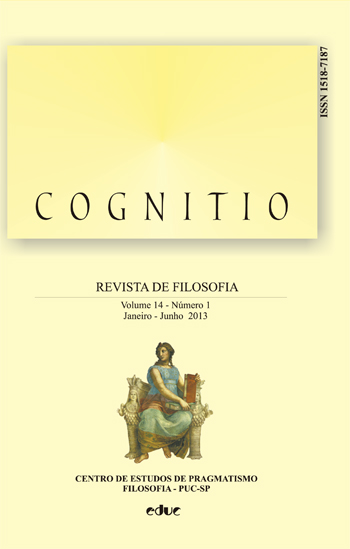Novas Direções na Ética Pragmática
Palavras-chave:
Ética, Pragmatismo.Resumo
É notório que James usou a máxima pragmática de Peirce não apenas para desenvolver uma teoria do significado, mas também para uma teoria da verdade - uma expansão da máxima que Peirce não aprovou. Mesmo assim, James encaminha a conceção de verdade numa direção interessante ao afirmar que ela é "uma espécie do bem". Consequentemente, os critérios que ele estabelece para crenças verdadeiras são também seus critérios para práticas e ações boas. Ao fazer isso, James institui as bases para uma Ética que é bem elaborada por Dewey e consistente com muitas das ideias éticas de Peirce. Uma ética que enfatiza a mesma característica prática do bem como aquela que melhora a condição humana por meio de práticas que melhor facilitam a resolução de problemas. O propósito deste trabalho é extrair essa ideia e demonstrar como ela dá novas direções à ética pragmática, uma que é continuada por neo-pragmatistas como Richard Rorty e Hilary Putnam.Métricas
Carregando Métricas ...
Downloads
Publicado
2013-09-11
Como Citar
Liszka, J. J. (2013). Novas Direções na Ética Pragmática. Cognitio: Revista De Filosofia, 14(1), 51–62. Recuperado de https://revistas.pucsp.br/index.php/cognitiofilosofia/article/view/16580
Edição
Seção
Artigos Cognitio









